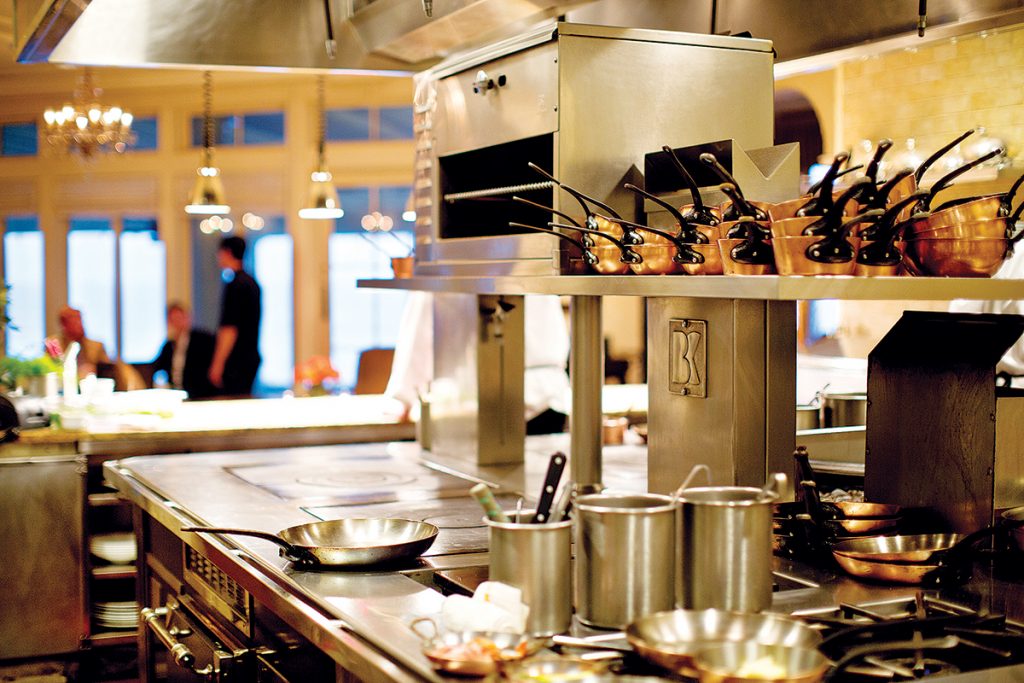You are seated at a table at a Rhode Island restaurant you have been looking forward to trying. When you open the menu, there are several choices that catch your eye. But you notice in the intriguing descriptions of the menu items a word or two with which you are not familiar. What is “yuzu?” Or potato “rosti?” How about “guanciale?” [Answers below.]
There was a poll published last month of members of the online reservation platform OpenTable titled “Misunderstood Menu Terms.” Upon closer examination, it was a list of ethnic and (to some) exotic ingredients or dishes. But when I asked a local chef to examine the list more closely, it revealed something not only about terms of the trade but about the people on both sides of the table who use them.
Like other online platforms, OpenTable engages its users in many far-reaching ways. Habits, associates, contacts, comings and goings can all be revealed and all with our willing permission. Toward this end, users’ preferences are routinely indexed and shared with the outside world. Often, users are asked about their likes and dislikes.
The survey asked users about the names of several menu terms. Many were quite simply names of ethnic foodstuff or methods of preparation. More than half of those responding diners did not know their meaning. What was revealing was the fact the poll, first conducted by the well-known Harris organization in 2016, found an overwhelming majority of diners – more than 90 percent – said even though they may not have been familiar with terms or descriptions of a menu item, they ordered it anyway! Incidentally, nearly half the diners surveyed choose a restaurant based on how familiar they are with the items listed on a menu. When diners encountered a term on a menu they did not understand, more than two-thirds asked the waiter to explain it, while almost half asked fellow diners at their table.
[caption id="attachment_205083" align="aligncenter" width="640"]

CHEF’S MENU: Pictured is the kitchen of the Spiced Pear restaurant at The Chanler Hotel, in Newport, which features potato rosti, or shredded potatoes sautéed on both sides until crisp, on the Chef’s Tasting Menu. / COURTESY KRISTIN TEIG[/caption]
One local restaurateur told me the increased knowledge of food available to us these days may not be the blessing it appears to be. Ted Karousos owns the Blue Plate Diner in Middletown and is frequently on my radio show. He says while we know so much more about food than we used to from food shows and celebrity chefs in the media, the level of expectation has increased as well. “We know about food, but we never learned to cook!” he said. This puts a great deal of responsibility on chefs and restaurateurs not only to deliver what tastes good to us but also to meet our nutritional needs, which can get tricky in areas such as gluten-free diets. As far as surveys such as OpenTable’s, they do not consider a chef’s creativity, which can change some of those definitions. Take that potato “rosti,” which is on the Chef’s Tasting Menu at the Spiced Pear restaurant at The Chanler Hotel in Newport accompanying a Wagyu Ribeye steak with wild mushrooms and black truffle. Rosti potato comes from Switzerland, although several Newport chefs have served it over the years at different restaurants. It is, at its essence, shredded potatoes sautéed on both sides until crisp and golden. But researching the recipe turns up variations with cheese or baked into a potato cake.
The remaining answers: Yuzu (“yoo-zoo”) is an intensely flavored Japanese citrus fruit with a taste of Meyer lemon, mandarin orange and grapefruit. Guanciale, pronounced either “gwan-she-alley” or “gwan-shalley,” is cured seasoned pork cheek. According to cookbook author and restauranteur Lidia Bastianich, it is interchangeable with pancetta (Italian bacon) in pasta all’Amatriciana with tomatoes, onions and Pecorino Romano cheese.
Bruce Newbury’s Dining Out radio talk show is heard Saturdays at 11 a.m. on 1540 AM WADK, through the TuneIn mobile app and via smart speaker. Email Bruce at Bruce@brucenewbury.com.












